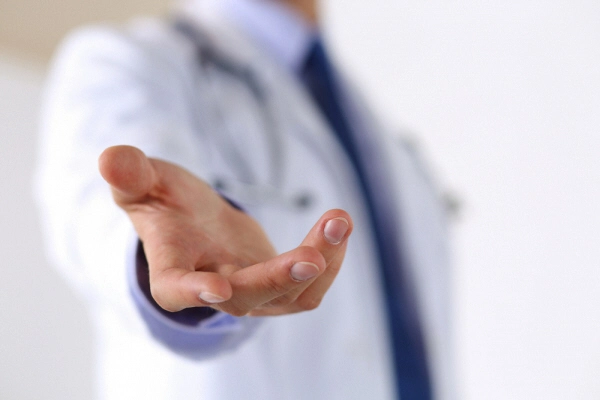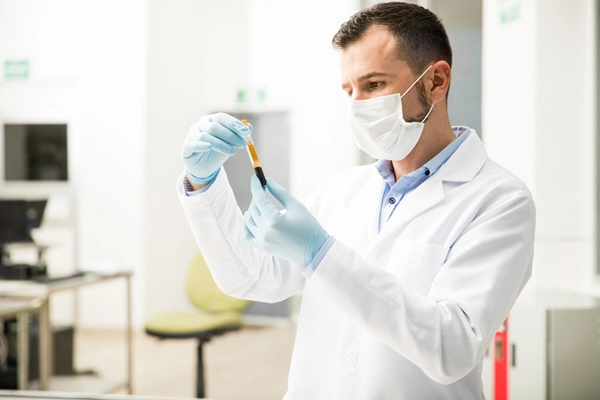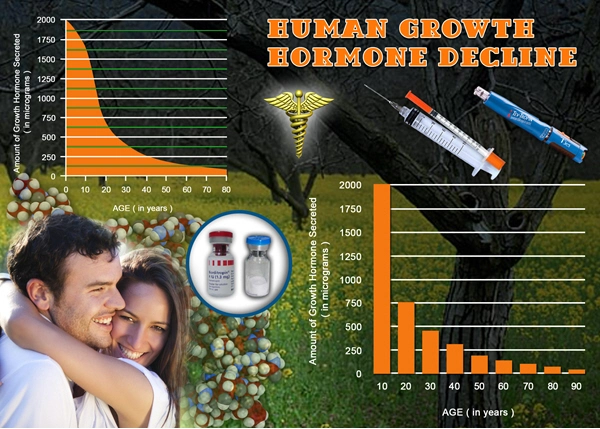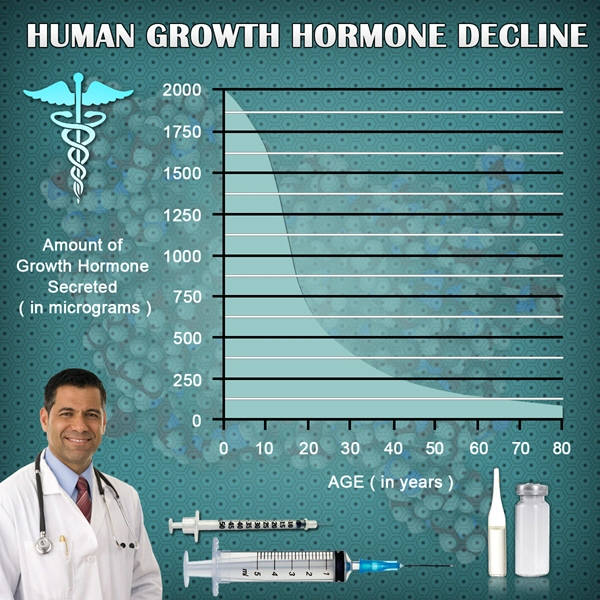Introduction to Secondary Hypogonadism
Secondary hypogonadism, also known as hypogonadotropic hypogonadism, is a condition characterized by the inadequate production of testosterone due to a dysfunction in the pituitary gland or hypothalamus. These brain regions are responsible for signaling the testes to produce testosterone. In American males, this condition can lead to a variety of symptoms including decreased libido, erectile dysfunction, fatigue, and mood disturbances. Understanding and treating secondary hypogonadism is crucial for improving the quality of life for affected individuals.
Causes and Diagnosis
The causes of secondary hypogonadism can be varied, ranging from genetic disorders to acquired conditions such as tumors, head trauma, or systemic diseases like hemochromatosis. Additionally, lifestyle factors such as obesity, stress, and the use of certain medications can contribute to the development of this condition.
Diagnosis of secondary hypogonadism typically involves a thorough medical history and physical examination, followed by blood tests to measure testosterone levels and other hormones such as luteinizing hormone (LH) and follicle-stimulating hormone (FSH). Imaging studies like MRI may be necessary to evaluate the pituitary gland and hypothalamus.
Treatment Options
Treatment for secondary hypogonadism aims to restore normal testosterone levels and alleviate symptoms. The approach to treatment can vary depending on the underlying cause and individual patient needs.
Hormone Replacement Therapy
Hormone replacement therapy (HRT) is a common treatment for secondary hypogonadism. This involves the administration of testosterone through various methods such as injections, gels, patches, or pellets. HRT can effectively improve symptoms related to low testosterone levels, but it is essential to monitor patients regularly to avoid potential side effects such as an increased risk of cardiovascular disease or prostate issues.
Addressing Underlying Causes
In cases where secondary hypogonadism is caused by treatable conditions, addressing the underlying issue is paramount. For instance, if a tumor is causing the dysfunction, surgical intervention or radiation therapy may be necessary. Similarly, if obesity is a contributing factor, lifestyle modifications including diet and exercise can be beneficial.
Gonadotropin Therapy
For men who wish to preserve fertility, gonadotropin therapy may be an option. This treatment involves the administration of human chorionic gonadotropin (hCG) and recombinant FSH to stimulate the testes to produce testosterone and sperm. This approach can be particularly useful for younger men who have not yet completed their families.
Lifestyle Modifications
Lifestyle changes play a crucial role in managing secondary hypogonadism. Regular physical activity, a balanced diet, and adequate sleep can help improve overall health and potentially boost testosterone levels. Additionally, managing stress through techniques such as meditation or yoga can be beneficial.
Monitoring and Follow-Up
Regular monitoring is essential for men undergoing treatment for secondary hypogonadism. This includes periodic blood tests to assess hormone levels and evaluate the effectiveness of the treatment. Adjustments to the treatment plan may be necessary based on these findings.
Psychological Support
The psychological impact of secondary hypogonadism should not be overlooked. Symptoms such as fatigue and decreased libido can affect a man's self-esteem and relationships. Counseling or support groups can provide valuable assistance in coping with these challenges.
Conclusion
Secondary hypogonadism is a complex condition that requires a multifaceted approach to treatment. For American males, understanding the causes and available treatment options is crucial for managing this condition effectively. By combining hormone replacement therapy, addressing underlying causes, and making lifestyle modifications, men can improve their symptoms and enhance their quality of life. Regular monitoring and psychological support are also essential components of a comprehensive treatment plan. With the right approach, men with secondary hypogonadism can lead fulfilling and healthy lives.

- Secondary Hypogonadism's Impact on Cardiovascular Health in American Men [Last Updated On: March 14th, 2025] [Originally Added On: March 14th, 2025]
- Stress and Secondary Hypogonadism: Impacts and Management Strategies for American Men [Last Updated On: March 17th, 2025] [Originally Added On: March 17th, 2025]
- Genetic Factors in Secondary Hypogonadism: KAL1, FGFR1, GNRHR Mutations and Treatment Implications [Last Updated On: March 17th, 2025] [Originally Added On: March 17th, 2025]
- Secondary Hypogonadism's Impact on Cognitive Function in American Men [Last Updated On: March 18th, 2025] [Originally Added On: March 18th, 2025]
- Secondary Hypogonadism in American Men: Building Essential Support Systems [Last Updated On: March 18th, 2025] [Originally Added On: March 18th, 2025]
- Secondary Hypogonadism's Psychological Impact on American Men: A Holistic Treatment Approach [Last Updated On: March 20th, 2025] [Originally Added On: March 20th, 2025]
- Secondary Hypogonadism in American Men: Causes, Diagnosis, and Management Strategies [Last Updated On: March 20th, 2025] [Originally Added On: March 20th, 2025]
- Secondary Hypogonadism: Impact on Energy and Treatment Strategies in American Males [Last Updated On: March 20th, 2025] [Originally Added On: March 20th, 2025]
- Exercise Strategies for Managing Secondary Hypogonadism in American Males [Last Updated On: March 21st, 2025] [Originally Added On: March 21st, 2025]
- Secondary Hypogonadism's Impact on Skin Health in American Men: Causes and Management [Last Updated On: March 21st, 2025] [Originally Added On: March 21st, 2025]
- Secondary Hypogonadism in American Males: Understanding and Managing Hair Loss [Last Updated On: March 21st, 2025] [Originally Added On: March 21st, 2025]
- Secondary Hypogonadism and Sleep: Impacts and Improvement Strategies for American Men [Last Updated On: March 21st, 2025] [Originally Added On: March 21st, 2025]
- Secondary Hypogonadism: Symptoms, Causes, and Treatment in American Males [Last Updated On: March 22nd, 2025] [Originally Added On: March 22nd, 2025]
- Secondary Hypogonadism: Impacts on Body Composition in American Men [Last Updated On: March 22nd, 2025] [Originally Added On: March 22nd, 2025]
- Secondary Hypogonadism's Impact on Immune System in American Men: A Comprehensive Overview [Last Updated On: March 22nd, 2025] [Originally Added On: March 22nd, 2025]
- Exploring Alternative Therapies for Secondary Hypogonadism in American Men [Last Updated On: March 22nd, 2025] [Originally Added On: March 22nd, 2025]
- Secondary Hypogonadism: Causes, Symptoms, and Treatment for American Males [Last Updated On: March 22nd, 2025] [Originally Added On: March 22nd, 2025]
- Secondary Hypogonadism: Causes, Symptoms, and Treatment for American Men [Last Updated On: March 22nd, 2025] [Originally Added On: March 22nd, 2025]
- Secondary Hypogonadism: Impacts on Prostate Health and Testosterone Therapy Considerations [Last Updated On: March 23rd, 2025] [Originally Added On: March 23rd, 2025]
- Secondary Hypogonadism in American Males: Links to Anemia and Treatment Strategies [Last Updated On: March 23rd, 2025] [Originally Added On: March 23rd, 2025]
- Secondary Hypogonadism: Long-Term Effects and Management in American Men [Last Updated On: March 23rd, 2025] [Originally Added On: March 23rd, 2025]
- Secondary Hypogonadism: Understanding Its Impact on Male Libido and Treatment Options [Last Updated On: March 24th, 2025] [Originally Added On: March 24th, 2025]
- Secondary Hypogonadism and Autoimmune Diseases: Implications for American Men's Health [Last Updated On: March 24th, 2025] [Originally Added On: March 24th, 2025]
- Secondary Hypogonadism's Impact on Mood Disorders in American Men: Mechanisms and Therapies [Last Updated On: March 24th, 2025] [Originally Added On: March 24th, 2025]
- Secondary Hypogonadism: Impacts on American Men's Social Life and Well-being [Last Updated On: March 24th, 2025] [Originally Added On: March 24th, 2025]
- Secondary Hypogonadism's Impact on Bone Density in American Men: Risks and Management [Last Updated On: March 24th, 2025] [Originally Added On: March 24th, 2025]
- Secondary Hypogonadism and Diabetes: Risks and Management for American Males [Last Updated On: March 25th, 2025] [Originally Added On: March 25th, 2025]
- Secondary Hypogonadism: Integrating Medical and Psychological Care for American Males [Last Updated On: March 25th, 2025] [Originally Added On: March 25th, 2025]
- Exercise Boosts Testosterone: Managing Secondary Hypogonadism in American Men [Last Updated On: March 25th, 2025] [Originally Added On: March 25th, 2025]
- Sleep Disorders Linked to Secondary Hypogonadism in American Men: Mechanisms and Implications [Last Updated On: March 25th, 2025] [Originally Added On: March 25th, 2025]
- Understanding Secondary Hypogonadism: Symptoms, Diagnosis, and Management in American Males [Last Updated On: March 25th, 2025] [Originally Added On: March 25th, 2025]
- Environmental Factors and Secondary Hypogonadism in American Men: Causes and Prevention [Last Updated On: March 25th, 2025] [Originally Added On: March 25th, 2025]
- Secondary Hypogonadism: Impact on Fat Distribution and Health in American Men [Last Updated On: March 26th, 2025] [Originally Added On: March 26th, 2025]
- Secondary Hypogonadism's Impact on Kidney Function in American Males: Diagnosis and Management [Last Updated On: March 26th, 2025] [Originally Added On: March 26th, 2025]
- Managing Secondary Hypogonadism and Fatigue in American Males: Diagnosis, Treatment, and Support [Last Updated On: March 26th, 2025] [Originally Added On: March 26th, 2025]
- Lifestyle Factors and Management of Secondary Hypogonadism in American Males [Last Updated On: March 26th, 2025] [Originally Added On: March 26th, 2025]
- Thyroid Function's Role in Secondary Hypogonadism Among American Males [Last Updated On: March 26th, 2025] [Originally Added On: March 26th, 2025]
- Understanding Secondary Hypogonadism: Causes, Symptoms, and Treatment Options for American Males [Last Updated On: March 26th, 2025] [Originally Added On: March 26th, 2025]
- Secondary Hypogonadism: Impacts and Management Strategies for American Men [Last Updated On: March 26th, 2025] [Originally Added On: March 26th, 2025]
- Secondary Hypogonadism's Impact on Muscle Strength in American Men: Diagnosis and Treatment [Last Updated On: March 26th, 2025] [Originally Added On: March 26th, 2025]
- Secondary Hypogonadism: Causes, Symptoms, and Treatment Options for American Males [Last Updated On: March 26th, 2025] [Originally Added On: March 26th, 2025]
- Secondary Hypogonadism's Impact on American Men's Physical Performance and Health [Last Updated On: March 26th, 2025] [Originally Added On: March 26th, 2025]
- Secondary Hypogonadism's Emotional Impact and Holistic Management in American Men [Last Updated On: March 27th, 2025] [Originally Added On: March 27th, 2025]
- Secondary Hypogonadism and Heart Disease: Risks, Symptoms, and Management for American Males [Last Updated On: March 27th, 2025] [Originally Added On: March 27th, 2025]
- Secondary Hypogonadism and Liver Health: Risks and Management for American Males [Last Updated On: March 27th, 2025] [Originally Added On: March 27th, 2025]
- Secondary Hypogonadism in American Males: Causes, Diagnosis, and Management Strategies [Last Updated On: March 27th, 2025] [Originally Added On: March 27th, 2025]
- Nutrition's Role in Managing Secondary Hypogonadism in American Males [Last Updated On: March 27th, 2025] [Originally Added On: March 27th, 2025]
- Managing Secondary Hypogonadism in American Males: Stress, Strategies, and Support [Last Updated On: March 29th, 2025] [Originally Added On: March 29th, 2025]
- Secondary Hypogonadism's Psychological Impact on Men: A Comprehensive Care Approach [Last Updated On: March 29th, 2025] [Originally Added On: March 29th, 2025]
- Secondary Hypogonadism's Impact on Cognitive Function in American Men: A Comprehensive Review [Last Updated On: March 29th, 2025] [Originally Added On: March 29th, 2025]
- Secondary Hypogonadism's Impact on Mood in American Men: Mechanisms and Interventions [Last Updated On: March 30th, 2025] [Originally Added On: March 30th, 2025]
- Secondary Hypogonadism: Causes, Symptoms, and Hormonal Therapy Management [Last Updated On: March 30th, 2025] [Originally Added On: March 30th, 2025]
- Secondary Hypogonadism: Impact on Energy and Vitality in American Men [Last Updated On: April 1st, 2025] [Originally Added On: April 1st, 2025]
- Managing Secondary Hypogonadism: The Crucial Role of Diet and Nutrition in American Men [Last Updated On: April 4th, 2025] [Originally Added On: April 4th, 2025]
- Secondary Hypogonadism in American Males: Impact on Weight and Management Strategies [Last Updated On: April 5th, 2025] [Originally Added On: April 5th, 2025]
- Sleep's Critical Role in Managing Secondary Hypogonadism in American Males [Last Updated On: April 6th, 2025] [Originally Added On: April 6th, 2025]
- Managing Secondary Hypogonadism: Symptoms, Causes, and Treatment for American Males [Last Updated On: April 7th, 2025] [Originally Added On: April 7th, 2025]
- Managing Secondary Hypogonadism: Holistic Approaches and Increased Awareness in American Males [Last Updated On: April 8th, 2025] [Originally Added On: April 8th, 2025]
- Secondary Hypogonadism's Impact on Emotional Resilience in American Men [Last Updated On: April 8th, 2025] [Originally Added On: April 8th, 2025]
- Secondary Hypogonadism: Impact on American Men's Relationships and Coping Strategies [Last Updated On: April 9th, 2025] [Originally Added On: April 9th, 2025]
- Secondary Hypogonadism's Impact on Mental Clarity in American Men: Insights and Treatment [Last Updated On: April 10th, 2025] [Originally Added On: April 10th, 2025]
- Managing Secondary Hypogonadism in American Men: Diagnosis, Treatment, and Lifestyle Strategies [Last Updated On: April 10th, 2025] [Originally Added On: April 10th, 2025]
- Understanding Secondary Hypogonadism: Symptoms, Causes, and Management in American Males [Last Updated On: April 11th, 2025] [Originally Added On: April 11th, 2025]
- Community Support Enhances Life Quality for Men with Secondary Hypogonadism [Last Updated On: April 11th, 2025] [Originally Added On: April 11th, 2025]
- Secondary Hypogonadism: Impacts on Daily Life and Treatment Options for American Men [Last Updated On: April 13th, 2025] [Originally Added On: April 13th, 2025]
- Secondary Hypogonadism in American Males: Impacts on Mental Health and Comprehensive Management [Last Updated On: April 13th, 2025] [Originally Added On: April 13th, 2025]
- Managing Secondary Hypogonadism in American Males: Personalized Approaches and Holistic Care [Last Updated On: April 14th, 2025] [Originally Added On: April 14th, 2025]
- Secondary Hypogonadism: Impacts on Muscle, Bone, Fat, Heart, and Sexual Health in Men [Last Updated On: April 15th, 2025] [Originally Added On: April 15th, 2025]
- Understanding Secondary Hypogonadism: Impacts and Management Strategies for Men's Vitality [Last Updated On: April 15th, 2025] [Originally Added On: April 15th, 2025]
- Secondary Hypogonadism in American Males: Causes, Diagnosis, and Management Strategies [Last Updated On: April 15th, 2025] [Originally Added On: April 15th, 2025]
- Understanding Secondary Hypogonadism: Causes, Symptoms, and Treatment for American Males [Last Updated On: April 15th, 2025] [Originally Added On: April 15th, 2025]
- Understanding Secondary Hypogonadism: Symptoms, Diagnosis, and Management in American Males [Last Updated On: April 16th, 2025] [Originally Added On: April 16th, 2025]
- Secondary Hypogonadism: Understanding Its Emotional Impact on American Men [Last Updated On: April 16th, 2025] [Originally Added On: April 16th, 2025]
- Nutrition's Role in Managing Secondary Hypogonadism: Key Nutrients and Dietary Strategies [Last Updated On: April 17th, 2025] [Originally Added On: April 17th, 2025]
- Secondary Hypogonadism: Symptoms, Diagnosis, and Holistic Management for American Males [Last Updated On: April 19th, 2025] [Originally Added On: April 19th, 2025]
- Secondary Hypogonadism in American Males: Lifestyle Factors and Management Strategies [Last Updated On: April 20th, 2025] [Originally Added On: April 20th, 2025]
- Secondary Hypogonadism: Impact on Self-Esteem and Holistic Management Strategies [Last Updated On: April 20th, 2025] [Originally Added On: April 20th, 2025]



List of USA state clinics - click a flag below for blood testing clinics.
Word Count: 582



















































